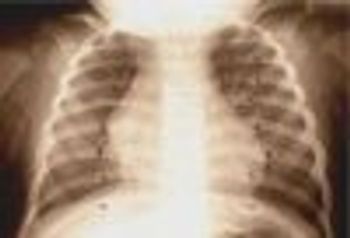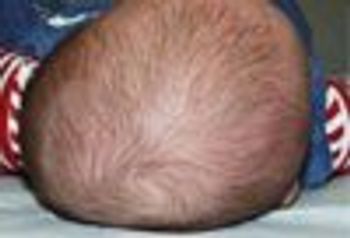
First-time applicants and first-time enrollment for US medical schools reached an all-time high this year.

First-time applicants and first-time enrollment for US medical schools reached an all-time high this year.

Babies as young as 2 months at increased risk for meningococcal disease should be immunized with a new combination meningitis vaccine.

Teenaged girls who present to emergency departments are not being screened for pregnancy before receiving treatment.

The practice of prescribing medications off label for children is almost the rule for pediatric intensive care units.

New cheerleading injury prevention guidelines from the American Academy of Pediatrics are meant to stem rising tide of catastrophic injuries.

After declining steadily since 2001, preventive health care visits are on the rise in 2012. Could health care reform be responsible?

Teenagers are accessing and abusing prescription analgesics at a rate higher than any generation before them.

A program of education on prescription practices was able to cut inappropriate prescribing of antibiotics by nearly half.

Organic foods have the same vitamins, minerals, antioxidants, proteins, lipids, and other nutrients as conventional foods-and also have lower pesticide levels.

A study of US boys found that they are exhibiting characteristics of sexual maturing about 2 years earlier than previously reported.

Beware handwritten prescriptions for insulin and use of abbreviations....this case illustrates the dangers.

Abdominal migraine affects up to 4% of the pediatric population and represents 4% to 15% of patients with functional abdominal pain. Most of those affected go on to have migraine headaches.

A new study has identified retinal imaging as a tool that can distinguish cases of abusive brain trauma with 93% accuracy.

Most primary care physicians support school-administered vaccination programs to bolster vaccination rates among the pediatric population.

A survey shows that the next generation of physicians may not fully grasp the significance of initiatives mandated by the ACA.

Children who are allergic to eggs can be safely vaccinated for seasonal influenza without risk of serious reaction, says new research.

Rib fractures suggest abuse and are a lone finding in 29% of skeletal injury cases.

Medical practices that need to implement training of office staff in health information privacy rules have an alternative to traditional classes.

Poor sleep habits may put adolescents at higher risk for developing insulin resistance that could lead to type 2 diabetes and cardiovascular disease.

A new analysis has found that adult trials outnumber trials for children by 11 to 1.

Children with severe autism spectrum disorder (ASD) often wander away from their homes or other safe environments, placing themselves in harm's way. A new study reveals the effect wandering has on families with children who exhibit this behavior.

Rib fractures suggest abuse and are a lone finding in 29% of pediatric skeletal injury cases.

The US Food and Drug Administration (FDA) has approved extended-release methylphenidate hydrochloride oral suspension for the treatment of attention-deficit/hyperactivity disorder (ADHD). Efficacy was determined in a randomized, double-blind, crossover study that showed improvement for both attention and behavior metrics for up to 12 hours in children aged 6 to 12 years diagnosed with ADHD compared with placebo. The once-daily treatment will be available in January 2013.

Lifetime earnings for primary care physicians (PCPs) fall well below the career incomes of specialists, which makes attracting medical students to primary care a difficult sell, according to a national study. More >>

Antianaerobic antibiotics commonly used to treat infections in children have been linked to the development of inflammatory bowel disease (IBD) in this population, with the highest risk for children aged younger than 1 year. More >>

Babies born into low-income, urban environments develop wheezing illnesses and asthma more often than suburban infants, and these findings have prompted research to identify the viral pathogens that lead to asthma or indicate predisposition to the disease. More >>

Baby boys who use pacifiers fail to mimic the facial expressions of adults and other children, which in turn impairs learning social and emotional responses to other human beings, according to research that explored the relationship between pacifier use and emotional development in children. More >>

Craniosynostosis is a condition in which one or more of the fibrous sutures in an infant skull prematurely fuses by ossification, thereby changing the growth pattern of the skull.

New designer drugs : Legal, available, deadly Etiologies of infectious mononucleosis Unique sleep needs of teenagers Puzzler : Abnormal, fidgety movements in young girl Dermcase : New virus causes fever, rash

The nation's drug czar's office highlighted the issues around the increased use of opioids by pregnancy women at a recent meeting, held just across from the White House.